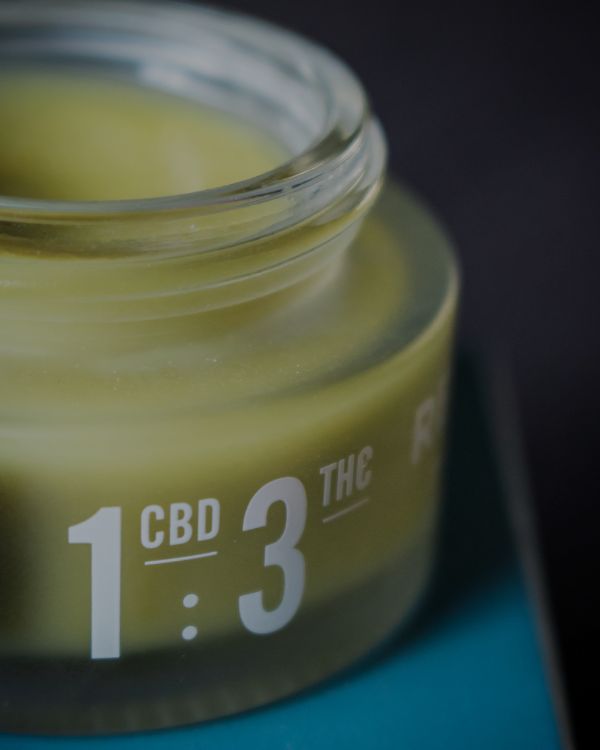Cannabis 101: The Difference Between THC and CBD
It is no secret, for centuries people have loved THC. But there is a new kid in town now, CBD. In recent years CBD has become a popular and sought-after addition for every beauty product, health food, and anti-anxiety campaign on the market. So-called “CBD infusions” are now being promoted in everything from youth serums to smoothies. CBD is one of the two most common chemical compounds found in cannabis plants. Even though the plant contains more than 140 unique chemical components, CBD and THC are among the most abundant. Their chemicals account for the therapeutic and recreational advantages that people frequently talk about when discussing cannabis. What is the difference between THC vs CBD, you may wonder? There are a few, and we hope to better explain them through this article.
What is the difference between CBD and THC?
Cannabis has two cannabinoids in particular: THC and CBD. They differ from one another in several ways, yet they are both cannabis-derived cannabinoids. These unique differences might influence your next dispensary visit.
The easiest way to think about it is that THC is defined by what cannabis makes you feel, while the effects of CBD cannot technically be felt. The significant distinction is that, unlike THC, CBD will not make you high.
CBD also has the ability to block out some of the intoxicating effects of THC by binding to our body’s cannabinoid receptors. As a result, CBD reduces the psychoactive effect. Which is why products including a combination of CBD and THC are great for first-time consumers.
High doses of CBD can produce deep relaxation for many people. For example, your body may feel tingly and relaxed, and your mind may be clear after stepping out of a hot CBD soak.
What is THC?
THC is the most psychoactive component in cannabis; It activates the brain’s reward system by signaling dopamine release causing people to feel euphoria, according to the National Institute on Drug Abuse (NIDA).
Smoking, topicals, edibles, sprays, or beverages are some of the many ways you can administer THC.
The Medical Benefits of THC
Regardless of the evidence proving that cannabis has medical advantages, THC is still classed as a schedule 1 drug according to federal law. At least 35 states and Washington D.C. have legalized THC’s medicinal use based on research indicating medical advantages.
The medical benefits of THC include:
- Reducing nausea
- Stimulating appetite
- Treating spasticity and neuropathic pain
Regardless of being legalized in several states to aid with various ailments, including anxiety and glaucoma, according to Aaron Weiner, Ph.D., a licensed clinical psychologist and addictions specialist, there is no difference between recreational and medical marijuana chemically.
What is CBD?
CBD may be extracted from the plant and used to make items that can be consumed without a high. As anxiety treatments, CBD oils, gummies, and other goods are increasing in popularity. The chemical in cannabis that causes the ‘high’ feeling is THC, and you can now obtain cannabis-derived CBD products with little to no THC for a clear-headed relief.
The Medical Benefits of CBD
Research shows CBD may help with a variety of ailments and people often use it to treat:
Although the use of cannabis-derived chemicals to treat pediatric ailments is still a touchy issue in a society where cannabis has been vilified. CBD became most well-known for treating a rare and severe form of pediatric epilepsy, in which scientific and anecdotal evidence suggested it can assist manage several issues. CBD has no fatal dose or known severe adverse effects, making it safe for children.

The Medical Benefits of THC in Combination with CBD
While THC is recognized for its mind-altering euphoric feeling, it also has significant medical advantages. There is some overlap between CBD and THC in terms of what they can treat. However, THC is particularly effective at alleviating nausea, appetite loss, sleeplessness, and other symptoms. But many individuals feel that a mix of CBD and THC gives the best symptom relief,
- The highs associated with high-THC strains are often absent in high-CBD strains. They are typically used by people who are unusually sensitive to the adverse side effects of THC (e.g., anxiety, paranoia, dizziness) and want to stay very clear-headed. A high-CBD strain would also be an excellent choice for someone needing to medicate throughout the day to control pain, inflammation, anxiety, or other chronic conditions.
- Balanced CBD/THC strains will be more euphoric than CBD-dominant strains. These are the most effective for pain alleviation and great for THC-sensitive folks looking for a mellow buzz. Nevertheless, they are far less likely to cause anxiety or paranoia.
So, next time you are looking for a natural solution to help with anxiety or reduce pain, consider cannabis. There are plenty of ways to get the benefits without having to worry about the psychoactive side effects! So go ahead and give it a try if you are curious! Furthermore, remember– regardless of your feelings on the plant or its byproducts, they can potentially help improve your health in some way, shape, or form.
We hope that this article has helped illuminate some of the differences between THC and CBD for you so that you can make a more informed purchase on your next trip to your local dispensary.

